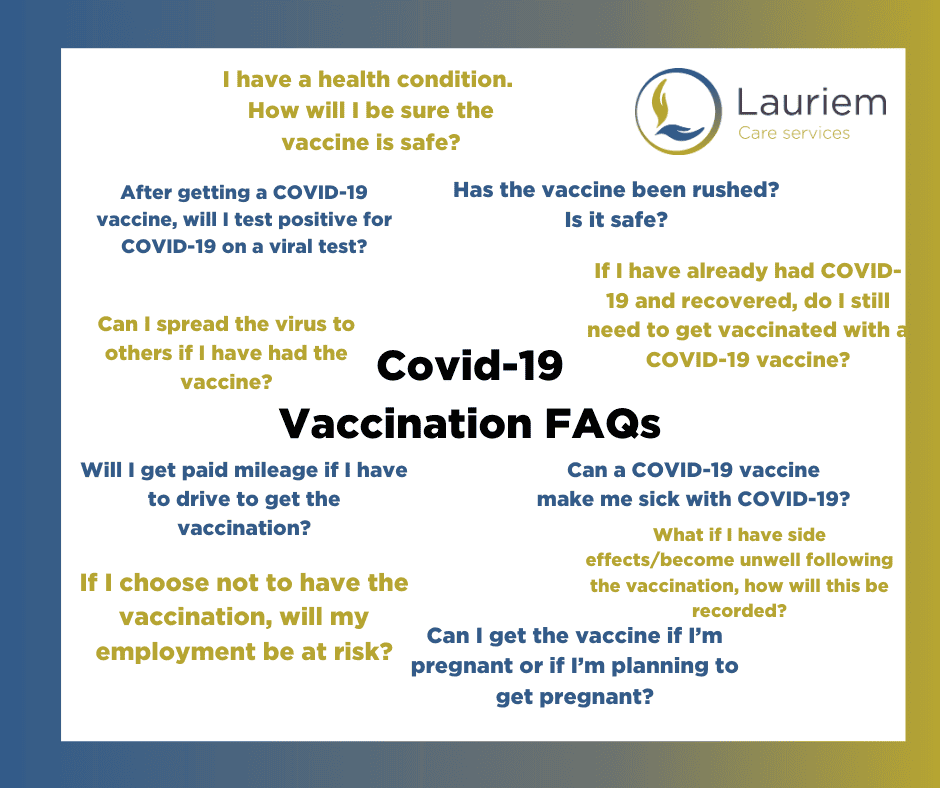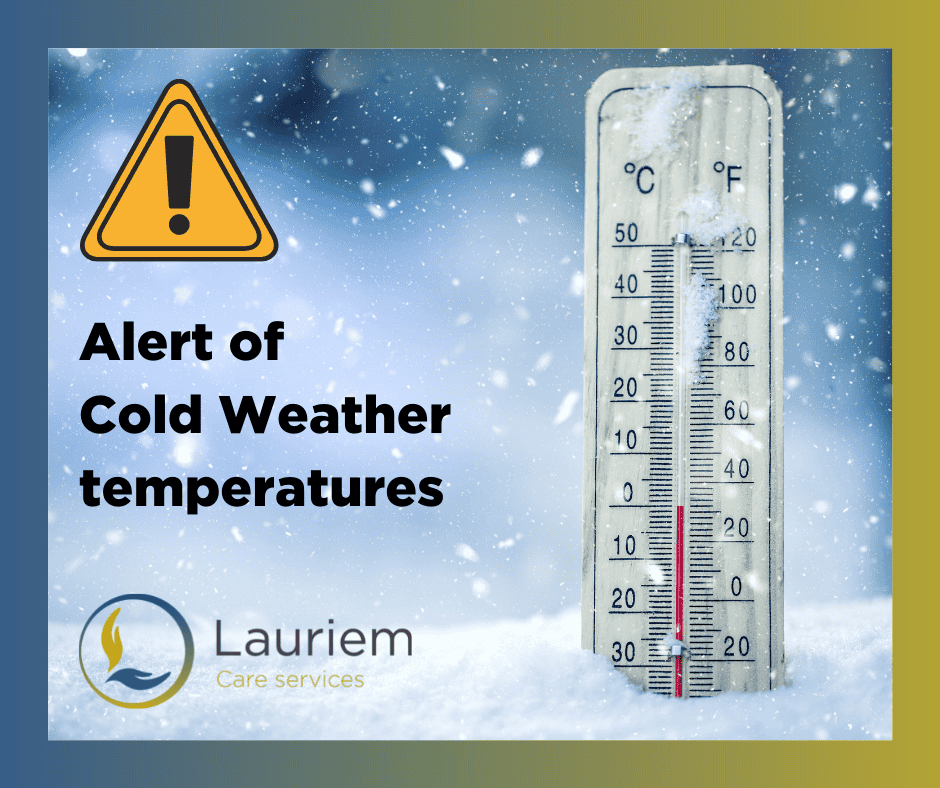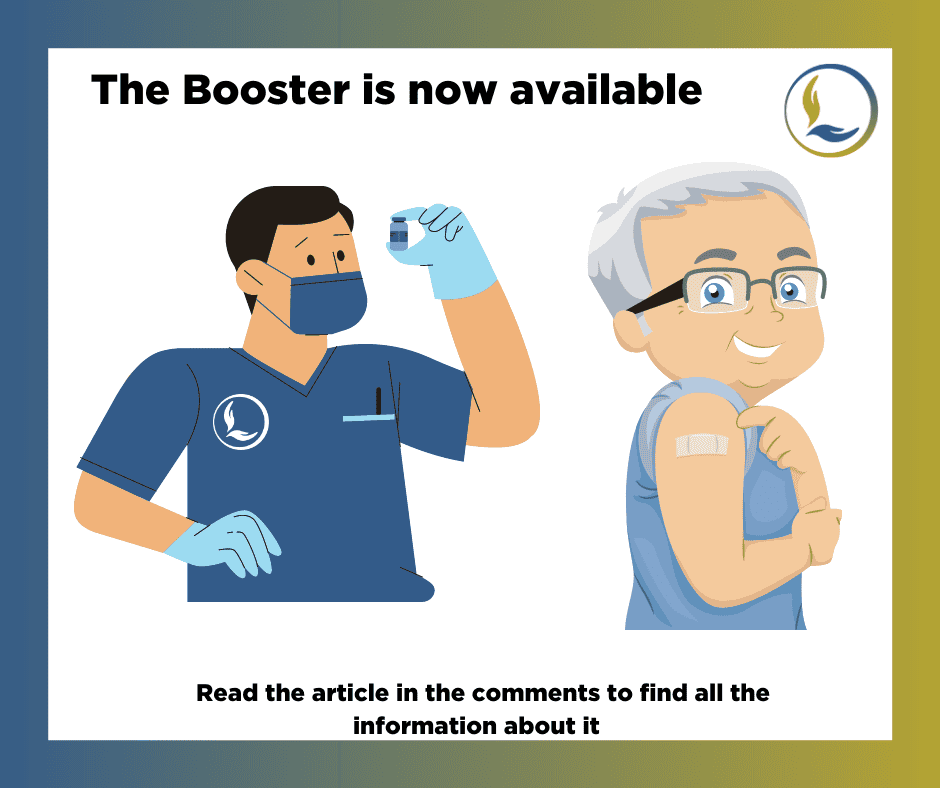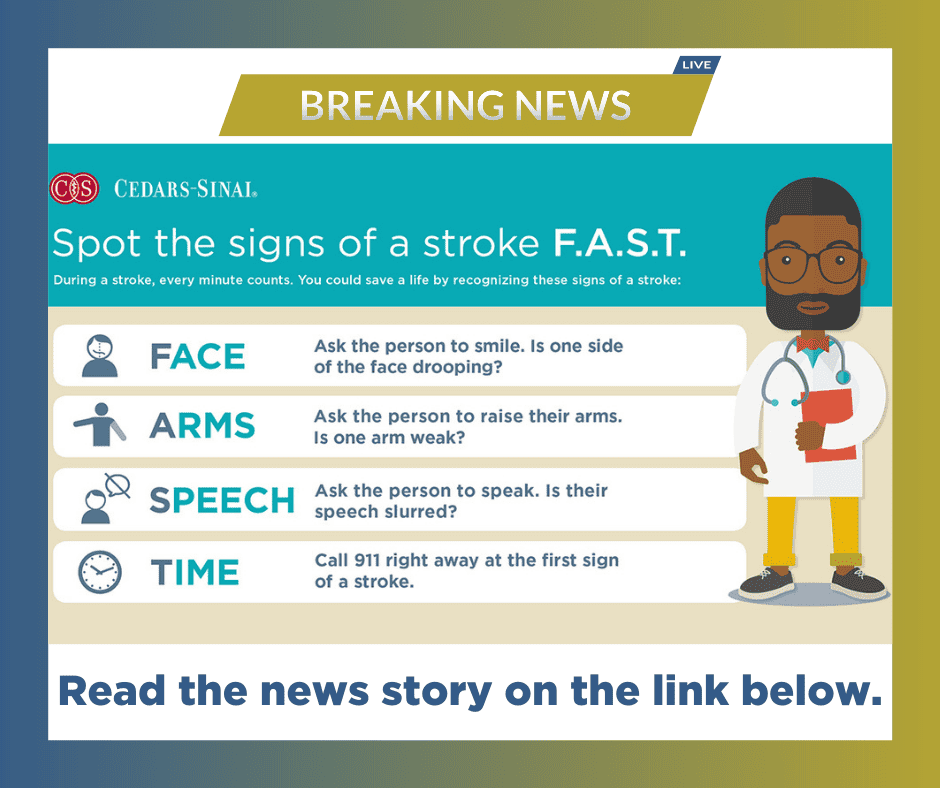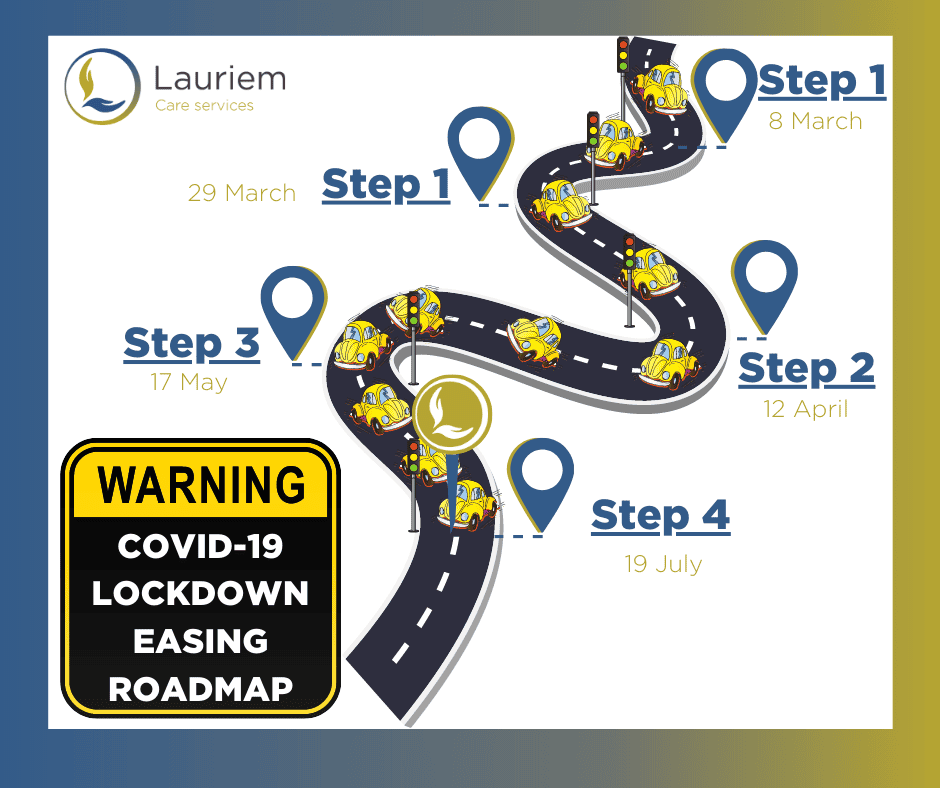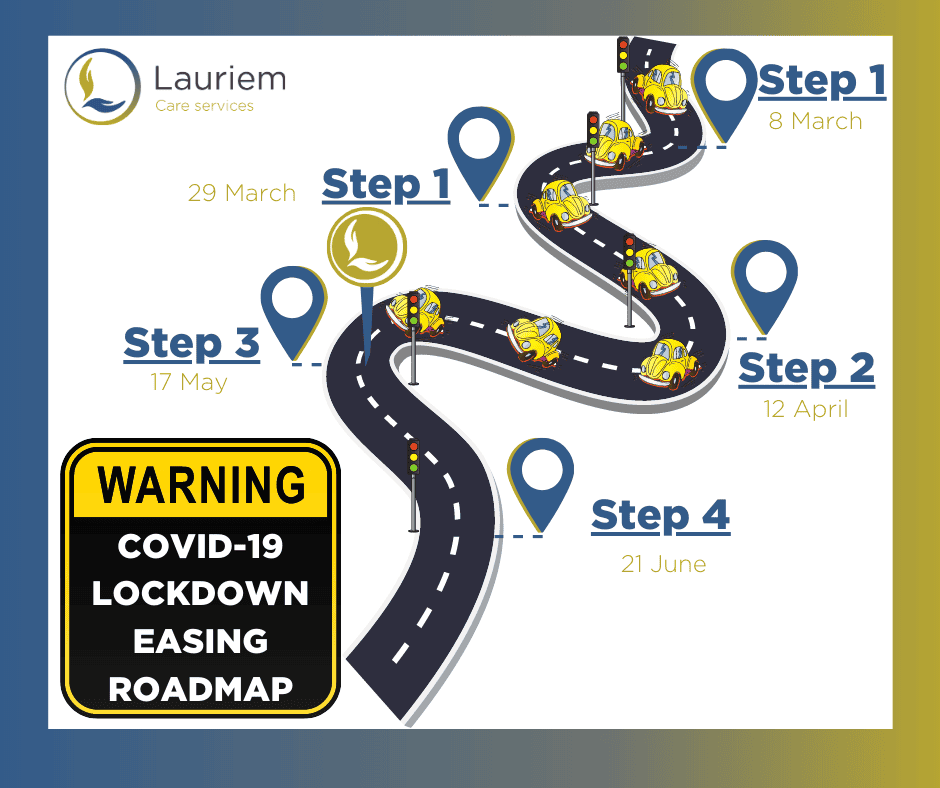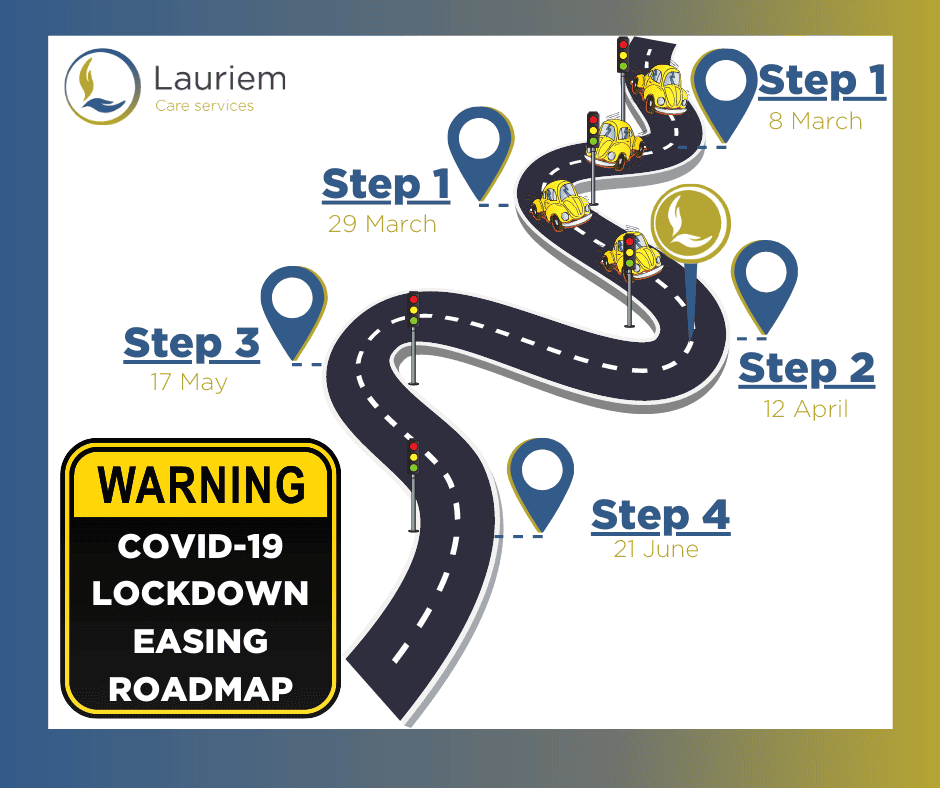COVID-19 Vaccination – FAQs
Source: PHE
We have collated a number of useful FAQs, as provided by PHE, and shared them below for your ease of reference.
- Can a COVID-19 vaccine make me sick with COVID-19?
- After getting a COVID-19 vaccine, will I test positive for COVID-19 on a viral test?
- If I have already had COVID-19 and recovered, do I still need to get vaccinated with a COVID-19 vaccine?
- Will a COVID-19 vaccination protect me from getting sick with COVID-19?
- Which lasts longer immunity after having Covid or immunity after having received the vaccine?
- Will a COVID-19 vaccine alter my DNA?
- How do mRNA Vaccines work
- Has the vaccine been rushed? Is it safe?
- Can I spread the virus to others if I have had the vaccine?
- If a person has received the vaccination and is subsequently notified that they have been in direct contact with a positive case – are they still required to isolate?
- Can the COVID-19 vaccine lead to people having a positive COVID-19 nose or throat swab test?
- What happens if I don’t go for my second appointment?
- Will the vaccine fully protect me against Covid-19?
- I have a health condition. How will I be sure the vaccine is safe?
- Can I get the vaccine if I’m pregnant or if I’m planning to get pregnant?
- I’ve heard the COVID-19 vaccination can affect your chances of getting pregnant?
- What happens if I experience side effects/adverse or unexpected events, how do I report it?
- What’s in the vaccines? Will they have any ingredients which are unsuitable for [religious group/vegan/ allergies etc.]?
- Can I get the vaccination during my working hours?
- What if I don’t have the time to get the vaccination during the working day?
- Will I get paid mileage if I have to drive to get the vaccination?
- If I go to get the vaccination outside my normal working hours, will my travel time be paid?
- What if I have side effects/become unwell following the vaccination, how will this be recorded?
- If I choose not to have the vaccination, will my employment be at risk?
- Do I have to disclose to my manager whether I have had the vaccination or not?
1. Question: Can a COVID-19 vaccine make me sick with COVID-19?
Answer: No. None of the authorised and recommended COVID-19 vaccines or COVID-19 vaccines currently in development contain the live virus that causes COVID-19. This means that a COVID-19 vaccine cannot make you sick with COVID-19.
There are several different types of vaccines in development. All of them teach our immune systems on how to recognize and fight the virus that causes COVID-19. Sometimes this process can cause symptoms, such as fever. These symptoms are normal and are a sign that the body is building protection against the virus that causes COVID-19. Learn more about how COVID-19 vaccines work.
It typically takes a few weeks for the body to build immunity (protection against the virus that causes COVID-19) after vaccination. That means it’s possible a person could be infected with the virus that causes COVID-19 just before or just after vaccination and still gets sick. This is because the vaccine has not had enough time to provide protection.
2. Question: After getting a COVID-19 vaccine, will I test positive for COVID-19 on a viral test?
Answer: No. Neither the recently authorised and recommended vaccines nor the other COVID-19 vaccines currently in clinical trials can cause you to test positive on viral tests, which are used to see if you have a current infection.
If your body develops an immune response—the goal of vaccination—there is a possibility you may test positive on some antibody tests. Antibody tests indicate you had a previous infection and that you may have some level of protection against the virus. Experts are currently looking at how COVID-19 vaccination may affect antibody testing results.
3. Question: If I have already had COVID-19 and recovered, do I still need to get vaccinated with a COVID-19 vaccine?
Answer: Yes. Due to the severe health risks associated with COVID-19 and the fact that re-infection with COVID-19 is possible, a vaccine should be offered to you regardless of whether you already had COVID-19 infection.
At this time, experts do not know how long someone is protected from getting sick again after recovering from COVID-19. The immunity someone gains from having an infection, called natural immunity, varies from person to person. Some early evidence suggests natural immunity may not last very long. We won’t know how long immunity produced by vaccination lasts until we have more data on how well the vaccines work.
Both natural immunity and vaccine-induced immunity are important aspects of COVID-19 that experts are trying to learn more about. PHE will keep the public informed as new evidence becomes available.
4. Question: Will a COVID-19 vaccination protect me from getting sick with COVID-19?
Answer: Yes. COVID-19 vaccination works by teaching your immune system how to recognise and fight the virus that causes COVID-19, and this protects you from getting sick with COVID-19.
Being protected from getting sick is important because even though many people with COVID-19 have only a mild illness, others may get a severe illness, have long-term health effects, or even die. There is no way to know how COVID-19 will affect you, even if you don’t have an increased risk of developing severe complications.
5. Question: Which lasts longer immunity after having Covid or immunity after having received the vaccine?
Answer: Experts are working to learn more about both natural immunity and vaccine-induced immunity. However, we do not yet know for sure how long immunity from either the vaccine or having had Covid infection will last.
6. Question: Will a COVID-19 vaccine alter my DNA?
Answer: No. COVID-19 mRNA vaccines do not change or interact with your DNA in any way.
Messenger RNA vaccines—also called mRNA vaccines—are the first COVID-19 vaccines authorized for use, and mRNA vaccines teach our cells how to make a protein that triggers an immune response. The mRNA from a COVID-19 vaccine never enters the nucleus of the cell, which is where our DNA is kept. This means the mRNA cannot affect or interact with our DNA in any way. Instead, COVID-19 mRNA vaccines work with the body’s natural defences to safely develop immunity to disease. At the end of the process, our bodies have learned how to protect against future infection. That immune response and making antibodies is what protects us from getting infected if the real virus enters our bodies.
7. Question: How do mRNA Vaccines work
Answer: New Approach to Vaccines mRNA vaccines are a new type of vaccine to protect against infectious diseases. To trigger an immune response, many vaccines put a weakened or inactivated germ into our bodies. Not mRNA vaccines. Instead, they teach our cells how to make a protein—or even just a piece of a protein—that triggers an immune response inside our bodies. That immune response, which produces antibodies, is what protects us from getting infected if the real virus enters our bodies.
A Closer Look at How COVID-19 mRNA Vaccines Work
COVID-19 mRNA vaccines give instructions for our cells to make a harmless piece of what is called the “spike protein.” The spike protein is found on the surface of the virus that causes COVID-19.
1. COVID-19 mRNA vaccines are given in the upper arm muscle. Once the instructions (mRNA) are inside the immune cells, the cells use them to make the protein piece. After the protein piece is made, the cell breaks down the instructions and gets rid of them.
2. Next, the cell displays the protein piece on its surface. Our immune systems recognize that the protein doesn’t belong there and begin building an immune response and making antibodies, like what happens in natural infection against COVID-19.
3. At the end of the process, our bodies have learned how to protect against future infection. The benefit of mRNA vaccines, like all vaccines, is those vaccinated gain this protection without ever having to risk the serious consequences of getting sick with COVID-19.
8. Question: Has the vaccine been rushed? Is it safe?
Answer: For a vaccine to reach the general public, it will have to work and be safe.
There may be a misconception that vaccine research takes a long time, but it isn’t the research that takes the time – it’s all the steps beforehand, like getting funding and approval. What’s sped up in the development of a COVID-19 vaccine is the funding. The UK Government-funded trials to get them up and running quickly. The Medicines and Healthcare Products Regulatory Agency (MHRA) and Medicines Research Authority have sped up the process of approval – things like administrative paperwork that used to take months is now being done in days. This is what’s brought down the time for delivery of the clinical trials.
Processes have been streamlined and run in parallel. The trials themselves have not been shortened, and the usual safety measures remain in place, and high standards must still be met.
It has also been enabled by new technology, including the ability to rapidly manufacture vaccines. And supply – the vaccine is being produced already so that as soon as it’s known to be safe and effective, it can be made available.
9. Question: Can I spread the virus to others if I have had the vaccine?
Answer: The purpose of the vaccine is to prevent you from getting a COVID-19 infection. This should reduce the chances of you being able to spread the infection by becoming ill. However, as the vaccine is new, it is not possible to establish if vaccination will prevent the virus’s carriage in the nose and throat of people who have been vaccinated. Therefore, the best protection you can have is to have the vaccination when you are invited to attend.
10. Question: If a person has received the vaccination and is subsequently notified that they have been in direct contact with a positive case – are they still required to isolate?
Answer: Yes. While the purpose of the vaccine is to prevent you from getting COVID-19 infection, which should reduce the chances of you being able to spread the infection by becoming ill; as the vaccine is new, it is not been possible to establish if vaccination will prevent the carriage of the virus in the nose and throat of people who have been vaccinated. Therefore if you are a household contact of or are advised by Contact Tracing or the STOPCOVID NI App, you are a close contact of a case of COVID-19 you need to self-isolate.
11. Question: Can the COVID-19 vaccine lead to people having a positive COVID-19 nose or throat swab test?
Answer: No. The vaccines being used produce a protective immune antibody response which serology blood tests can measure. They do not affect a PCR swab test, which is the basis of diagnosing COVID-19 infection by detecting viral RNA in the nose and throat. PCR tests will be used as part of the vaccine effectiveness assessment in those who are vaccinated and subsequently develop symptoms of COVID-19.
12. Question: What happens if I don’t go for my second appointment?
Answer: The first dose of both COVID-19 vaccines will provide short term protection. It is important to get the second dose to provide fuller, long term protection against COVID-19.
13. Question: Will the vaccine fully protect me against Covid-19?
Answer: The current vaccines have demonstrated a high level of protection against COVID-19, but no vaccine provides 100% protection. However, as more people in the population are vaccinated with an effective vaccine, the risks of circulating virus should decrease, protecting those who either do not respond fully to the vaccine or are unable to have the vaccine because of allergic reactions.
14. Question: I have a health condition. How will I be sure the vaccine is safe?
Answer: The vaccines currently available in the UK do not contain living organisms and so are safe for people with disorders of the immune system. People who should not receive the vaccine include:
· A confirmed anaphylactic reaction to a previous dose of the COVID-19 vaccine.
· A confirmed anaphylactic reaction to any components of the vaccine.
· Severe illness and a high fever on the day of vaccination.
There are very few individuals who cannot receive the Pfizer-BioNTech or AstraZeneca COVID-19 vaccines. There is doubt, rather than withholding vaccination, that appropriate advice should be sought from the relevant specialist or the local immunisation or health protection team to allow individuals to make an informed decision.
15. Question: Can I get the vaccine if I’m pregnant or if I’m planning to get pregnant?
Answer: The Joint Committee on Vaccination and Immunisation (JCVI) has amended its previous highly precautionary advice on COVID-19 vaccines and pregnancy or breastfeeding. Vaccination with either vaccine in pregnancy should be considered where the risk of exposure SARS-CoV2 infection is high and cannot be avoided. The woman has underlying conditions that place her at very high risk of serious complications of COVID-19. The risks and benefits of vaccination should be discussed.
Those who are trying to become pregnant do not need to avoid pregnancy after vaccination, and breastfeeding women may be offered vaccination with either vaccine following consideration of the woman’s clinical need for immunisation against COVID-19. The UK Chief Medical Officers agree with this advice. https://www.health-ni.gov.uk/news/statement-uk-chief-medical-officers-prioritisation-first-doses-covid-19-vaccines
16. Question: I’ve heard the COVID-19 vaccination can affect your chances of getting pregnant?
Answer: Social media posts claiming that the “head of Pfizer research” said the company’s COVID-19 vaccine would cause infertility in women have been shared widely in recent days. The person referred to is a former employee of Pfizer who left the company in 2011 and who has shared misinformation about COVID-19 in the past. These false claims have been debunked by Snopes (a fact-checking website).
17. Question: What happens if I experience side effects/adverse or unexpected events? How do I report it?
Answer: Vaccines are very safe. As with all medicines, side effects can occur after getting a vaccine. However, these are usually very minor and of short duration, such as a sore arm or a mild fever. An uncommon side effect is swelling of the local glands. More serious side effects are possible but extremely rare. Tests have been done in thousands of adults to ensure the vaccine is safe. At the point of vaccination, you will receive information about how to report any adverse events. It is essential that any events are reported and investigated. The safety of patients/ recipients is paramount.
18. Question: What’s in the vaccines? Will they have any ingredients which are unsuitable for [religious group/vegan/ allergies etc.]?
Answer: Patient leaflets explaining the different vaccines and ingredients will be developed and information made available to people prior to vaccination so they can make an informed decision.
The Pfizer vaccine does not contain any meat derivatives or porcine products.
The British Islamic Medical Association has released a position statement recommending the AstraZeneca COVID-19 vaccine for the Muslim community at https://britishima.org/covid19-vaccine-az/.
Any person with a history of anaphylaxis to any component of the vaccine being offered should not receive it. A second dose of the same vaccine should not be given to those who have experienced anaphylaxis the first dose it.
The Pfizer BioNTech vaccine contains polyethylene glycol (PEG), from a group of known allergens commonly found in medicines and household goods and cosmetics. A known allergy to PEG is extremely rare, but people with this allergy should not receive the Pfizer BioNTech vaccine. Patients with undiagnosed PEG allergy may have a history of unexplained anaphylaxis or anaphylaxis to multiple drugs classes. The AstraZeneca vaccine does not contain PEG and is a suitable alternative.
19. Question: Can I get the vaccination during my working hours?
Answer: Yes, staff should work with managers to agree their attendance for vaccination during working hours (within the needs of the service) and staff are encouraged to avail of this as the preferred option. Staff will book appointment times in advance and should try to take appointments at the most appropriate times during the day, to cause minimum disruption to services. Line Managers will similarly facilitate attendance for the 2nd course of the vaccination within 21 day period as required.
20. Question: What if I don’t have the time to get the vaccination during the working day?
Answer: Where it has not been possible to get a vaccination during your normal working hours and you have discussed this with your Line Manager, staff should attend their most convenient vaccination centre, at a time that suits. Staff will be credited with the time taken for this. For staff who are on annual leave but wish to get the vaccination, they will be able to claim the credit for attending for vaccination.
21. Question: Will I get paid mileage if I have to drive to get the vaccination?
Answer: Yes, where staff have to travel to the vaccination centre which is not at their normal work base, or if they have had to travel to a centre outside their normal working hours, they will be paid the excess mileage incurred for this journey.
22. Question: If I go to get the vaccination outside my normal working hours, will my travel time be paid?
Answer: Yes, travel time will be paid as part of the time credited for your vaccination. This will be rounded to the nearest 15 mins in terms of your journey time.
23. Question: What if I have side effects/become unwell following the vaccination, how will this be recorded?
Answer: In line with the PHA ‘Frequently Asked Questions’ Line Managers will record COVID-19 sickness (related to the vaccination) as special leave category ‘Public Serv Duties Paid’ on HRPTS20/01/2021
24. Question: If I choose not to have the vaccination, will my employment be at risk?
Answer: Health and Social Care Staff are encouraged to have the COVID 19 Vaccine to protect themselves, their own families Service Users’ and friends plus the wider community. In the event that their role involves working with those who are particularly at risk, the Line Manager may discuss this with the member of staff and revisit the COVID-19 Risk assessment for this work and explore whether or not there are any options available if this is necessary. This may include short term or further redeployment which would be in line with a review of relevant COVID-19 risk assessment. These discussions will be on an individual case by case basis.
25. Question: Do I have to disclose to my manager whether I have had the vaccination or not?
Answer: This information will be gathered as part of the recording of the details regarding the uptake of vaccinations at the relevant vaccination centres. Whilst we appreciate that this vaccination is not mandatory, it is expected that staff disclose to their appropriate manager when they have received the vaccination. This also allows for the support of staff who have had the vaccination, in the event of any reactions to this.


